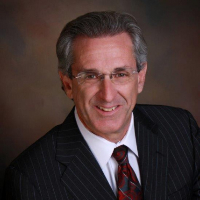Indialantic Criminal Lawyer, Florida
Sponsored Law Firm
-
 x
x

Click For More Info:
-
Law Office of Mark S. Guralnick
55 Madison Avenue 4th Floor Morristown, NJ 07960» view mapCriminal Defense Law Dedicated. Fearless. Successful.
Mark S. Guralnick and his legal team have helped clients throughout the USA and across the world by applying unparalleled dedication and hard work to each case.
800-399-8371
Steven G. Casanova
✓ VERIFIEDCriminal, DUI-DWI
Mr. Casanova vigorously defends the accused in all cases ranging from misdemeanors to serious felonies. He practices in both State and Federal Courts.... (more)
Deana Bell
✓ VERIFIEDDivorce & Family Law, Wills & Probate, Criminal, Accident & Injury, Power of Attorney
I began my legal career in 1986 when I was a senior in High School. I started as a receptionist in a busy New York law firm. From there, I became a se... (more)
Paul E. Bross
Accident & Injury, Personal Injury, Criminal, Divorce & Family Law
Status: In Good Standing
FREE CONSULTATION
CONTACTJoe Martin Mitchell
Dispute Resolution, State Trial Practice, Criminal, Personal Injury
Status: In Good Standing Licensed: 56 Years
Ronald Lee Ecker
Traffic, Immigration, Family Law, Criminal
Status: In Good Standing Licensed: 28 Years
Ronald L. Ecker II
Traffic, White Collar Crime, DUI-DWI, Criminal
Status: In Good Standing Licensed: 28 Years
Renee L. Dial
Federal Trial Practice, Criminal, Business, Accident & Injury
Status: In Good Standing Licensed: 11 Years
Billie Jo Hopwood
Family Law, Divorce & Family Law, Criminal, Personal Injury
Status: In Good Standing Licensed: 16 Years
 Mark Guralnick Morristown, NJ
Mark Guralnick Morristown, NJ AboutLaw Office of Mark S. Guralnick
AboutLaw Office of Mark S. Guralnick Practice AreasExpertise
Practice AreasExpertise


